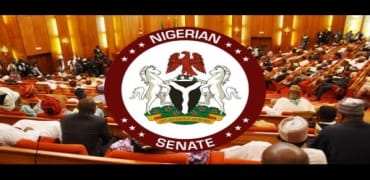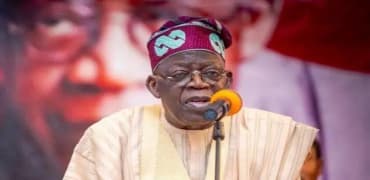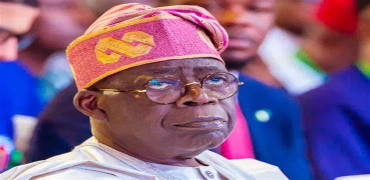Kabiru Masari, Beacon of Integrity, Loyalty in Nigerian Politics
Kabiru Masari, Beacon of Integrity, Loyalty in Nigerian Politics
By Bamidele Atoyebi
In recent weeks, Kabiru Masari’s name has dominated Nigeria's political discuss, sparking curiosity about his unique closeness to President Bola Ahmed Tinubu.
Information has it that he moves freely in and out of the seat of power and therefore enjoys unfettered access to President Bola Ahmed Tinubu, and that his approval can grant or deny others access to the President.
For some, this raises suspicion about shadow governance or not in the popular sobriquet, cabal. But a closer look at Masari’s story reveals something scarce in present times: a rare lesson in loyalty, trust, integrity, and political memory.
Kabiru Masari’s national prominence dates back to the run-up to the 2023 general elections. At a critical moment when the All Progressives Congress (APC) needed to submit a running mate for Bola Tinubu to meet INEC’s deadline, Masari agreed to serve as a placeholder vice-presidential candidate.
It was a delicate period in which Tinubu’s political future could have been destabilized, yet Masari’s presence held the line.
When the time came to step aside for Senator Kashim Shettima, Masari resisted all proddings and did so quietly, without rancour or drama. In a political climate where ambition often trumps loyalty, that decision though may seem simple and straightforward, speaks volumes about his character and person.
History shows that few Nigerian politicians resist the allure of power once they have tasted it. Atiku Abubakar, for instance, won the governorship of Adamawa State but abandoned it when the vice-presidential slot under Olusegun Obasanjo presented itself.
Most recently, Professor Yemi Osinbajo, who rose to national prominence on the back of Tinubu’s influence as vice president, went on to contest against his benefactor in the APC primaries. Other examples are legion and we lack space to list them.
Kabiru Masari could easily have taken a similar route, insisting on keeping the VP slot, especially after the primaries when the stakes grew higher. Instead, he demonstrated restraint and consistency of character. In doing so, he showed that not every politician must place ambition above loyalty.
A critic like Senator Marafa claimed that Tinubu is a politician who “uses and dumps” people once they have served their purpose. Yet, Masari’s privileges today, his access to the president, and his respected influence despite holding no executive office, prove proves contrary to Marafa's assertion.
They show Tinubu as a man with a long memory, one who rewards loyalty even without the trappings of official titles.
If Tinubu ever distances himself from anyone, it is often not because he forgets, but because of chameleonic somersaults prevalent in our present times, it must be the person either tried to bite more than they could chew, never truly rendered help from the beginning or tuned rogue.
The stories of Akinwunmi Ambode, Lai Muhammed, and Rauf Aregbesola illustrate this point: they once enjoyed Tinubu’s political support but fell out of favour due to tainted loyalty or overarching ambition.
On the other hand, Babatunde Fashola, Gbajabiamila and a host of lawmakers from South West are examples of those whose consistent loyalty ensured continued relevance long after their first appointments.
Masari’s position is not about undermining institutions or operating as a shadow government. It is about the president’s way of repaying kindness with trust which is core of his political philosophy.
In a political space where betrayals are rife, Masari represents the rare example of character consistency, reliability and integrity who walked away from power when he could have clung to it, and in return, earned lasting respect.
This relationship also sends a broader message: loyalty is not a weakness, and it does not always go unrewarded. In fact, it can secure privileges that titles alone may never guarantee.
Kabiru Masari’s story is more than a curiosity about who walks in and out of Aso Rock. It is a reminder that loyalty, restraint, and trust are powerful currencies in politics.
It also underscores President Tinubu’s political style: one that remembers and repays genuine loyalty while recognizing the difference between true allies and opportunists.
If Nigerian politics learned to reward loyalty and competence in the same way Tinubu has rewarded Masari’s loyalty, our democracy would not only be stronger but also more trusted by the people. After all, who won't want people around him whose reliability enables him to sleep with two eyes closed?
Bamidele is the Convenor of BAT Ideological Group, National Coordinator of Accountability and Policy Monitoring and Publisher at Unfiltered and Mining Reporting
















